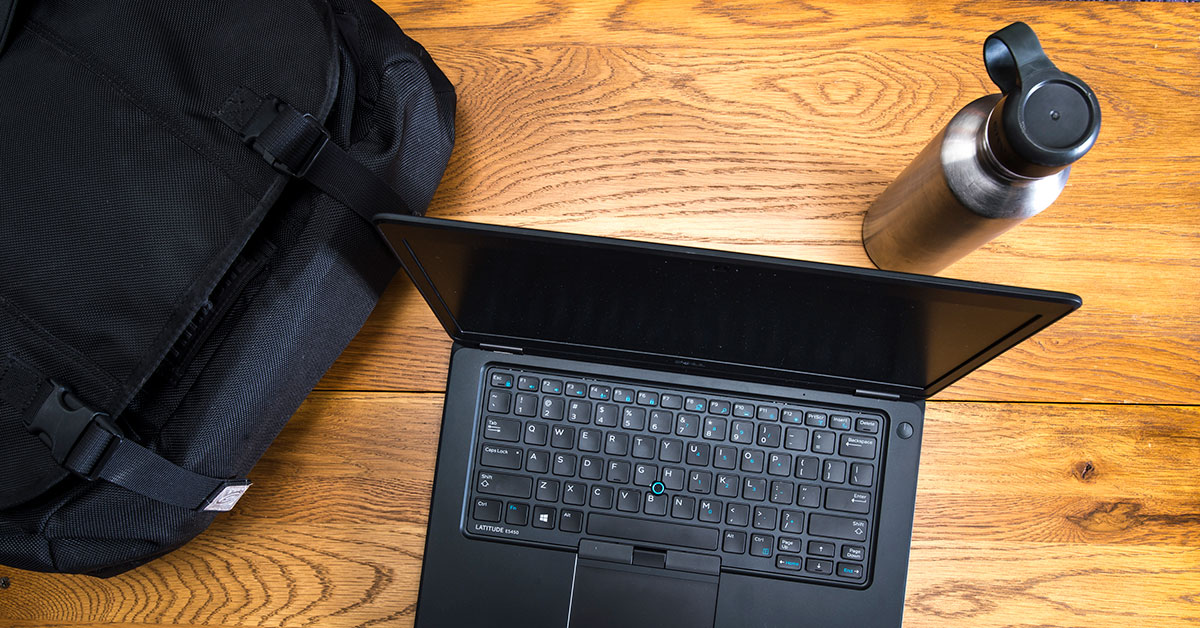7 Tips for Protecting Your Online Data

Concordia University Texas is home to IncubatorCTX, which offers valuable resources for entrepreneurs and is located in Northwest Austin. Bill Alderson, co-founder and CTO of HOPZERO, was the latest guest at the IncubatorCTX Speaker Series. He shared simple ways you can protect your online data.
Understand the risk to the security of your online data.
Any device that connects to the internet is at risk of being hacked. Alderson explained that every connected gadget we have is capable of being hacked, from our smartwatches and printers to our Crock Pots (You read it right - WiFi-enabled Crock Pots.) and our smart TVs.
Limit your connected devices.
The easiest way to reduce the possibility of being hacked is to limit the number of connected devices you own. Yes, it means turning the light switch on yourself and opening the fridge to see what's inside instead of knocking on a screen, but it also means your less vulnerable to hackers.
Never click a link in an email.
Even if an email looks legitimate, Alderson advises that you should not click any link that comes through an email. If you get an email from your bank with a link, do not click it. Go directly to the bank's site by typing its website into the address bar.
Phishing, which is when a hacker attempts to gain access to your sensitive information by masquerading as a legitimate organization or person, is preventable. Simply avoid clicking any links you receive through your email.
Report suspicious emails to your supervisor or IT team.
Firewalls, designed to protect your online data from hackers, are susceptible to human error. Just one wrong click can grant hackers access to an organization's online data.
If you receive an email at work that looks the tiniest bit suspicious, report it to the IT department or your supervisor. If you receive a suspicious email through your Concordia student account, please report it to the Helpdesk.
Write down your password, minus a character or two.
Nearly every website now requires a password. Although it seems tedious, this is a smart way to protect customers' online data, especially if you save your credit or debit card information in your online accounts.
To keep them all straight, many people write them down. However, if your book of passwords fell into the wrong hands, your accounts would be completely exposed.
Alderson offers a great way to prevent this from happening. Choose one or two characters to incorporate into every password you create. When you record a password, leave the special character(s) out. Only you will know the special character or characters you have chosen, so even if someone sees your recorded password, they still won't be able to gain access to your account.
Another simple solution is to avoid saving your credit or debit card information to your accounts on various websites. You'll have to enter your card information for each purchase, but it's a much safer approach.
Take your receipts.
When you dine out, a majority of restaurants provide you with two receipts - one for you and one for the restaurant. A receipt typically has a blank space for you to include a tip and another space directly beneath that for the total amount you agree to pay. If you don't take your copy of the receipt and leave the tip amount empty, a server can put any tip they desire and charge you more.
To prevent this from happening, simply take your copy of the receipt, and make sure you fill out the restaurant's copy completely, including the tip amount and total.
Monitor Your Bank Account.
Monitoring your bank account is a good habit for form. While you don't have to check it every day, it's important to check it at least once per week to ensure that all of the recorded transactions on your account are accurate.
Remember those receipts you started saving? Use those to double-check the amounts withdrawn from your account. Some credit and debit cards even offer text alerts whenever your card is used, making the tracking process even easier.
Do you love balancing statements? Does the world of debits and credits fascinate you? Concordia offers a BBA in Accounting & Financial Management!
